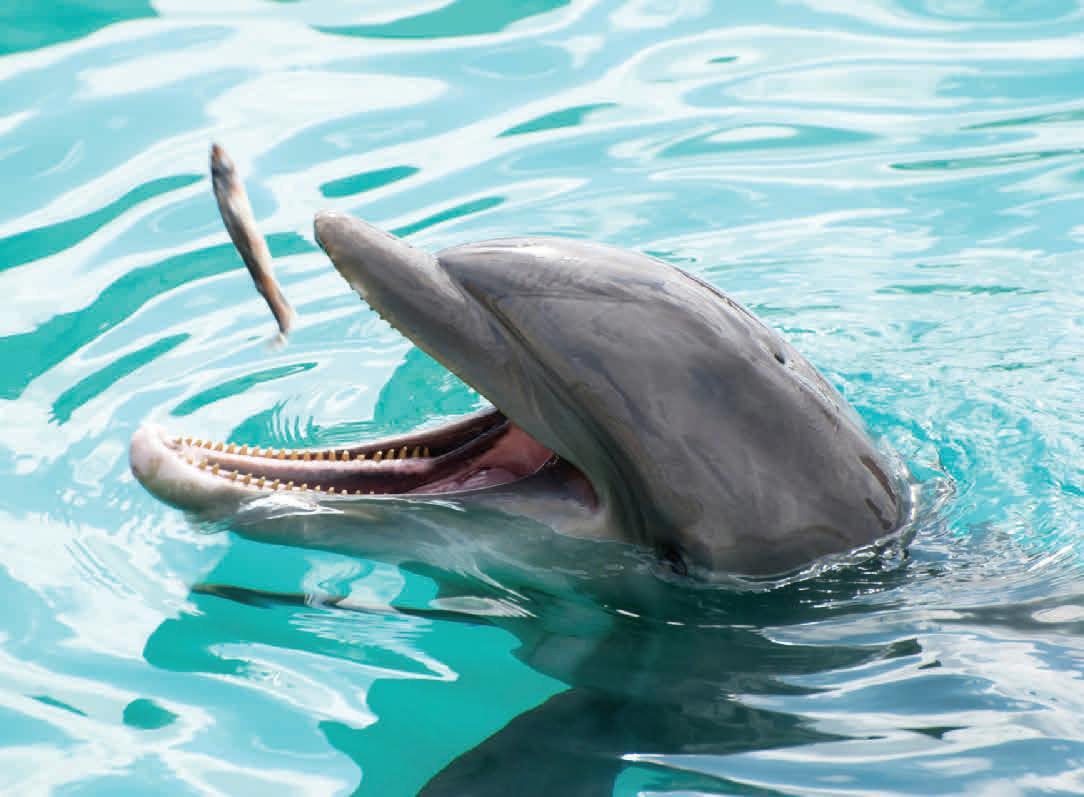
1 minute read
Members’ Corner
In Douglas Adams’ classic science fiction opus “The Hitchhiker’s Guide to the Galaxy,” that valediction comes from the Earth’s dolphins, who leave the planet just prior to its destruction. Their parting message was intended to warn humanity about the planet’s pending peril, as the clever and compassionate dolphins realize that humans are a less intelligent species. Gratitude for the provision of fish is fictionally portrayed by dolphins in marine parks, but in reality, these captive creatures are not thankful, and cannot escape.
Humans have long exploited marine mammals and fish species for entertainment and profit, most often without concern for their physical or emotional well-being. For all their claims of conservation, protection, and education, aquariums and aquatic theme parks are still penitentiaries consisting of pools—artificially created environments that cannot possibly compare to the expanse and biodiversity of the world’s oceans.
While imprisoned in water tanks at tourist destinations, marine mammals are at risk of serious and sometime fatal health issues from self-harm, poor dental care, illnesses, infections, and attacks by dominant cellmates. Also, the behavior of wild animals is unpredictable, and direct human interaction with wildlife has resulted in injuries and deaths. Two revealing documentaries focused on cetaceans, “The Cove” (2009) and “Blackfish” (2013), exposed the cruelty and psychological impacts of their capture in the wild, separation from family and social groups, long-term captivity, breeding, aggressive training, and hunger-induced performance.
Despite the detriment to animals held in profit-driven tourist venues, humans still seek to observe and invasively interact with oceanic animals. However, humane and responsible ecotourism can potentially be safe and even beneficial for wildlife, with trips inspiring advocacy efforts to protect vulnerable species and their habitats.
When booking a wildlife excursion, it doesn’t hurt to approach “no animals harmed” claims with some skepticism. Conduct proper research and exercise best practices for the benefit of yourself and the animals you wish to observe in their natural environments. Read online reviews and social media posts for destinations and tour operators, noting any questionable activities encouraged or allowed during visits and trips. Some travel websites include sections dedicated to animal welfare and the ethical standards of tourist attractions.
At the least, if you are interested in viewing cetaceans and other wild aquatic species on whale-watching or other excursions, a program sponsored by the National Oceanic and Atmospheric Administration called Whale Sense (whalesense.org) lists tour companies that are committed to responsible practices. You also might consider travel opportunities organized by reputable organizations dedicated to animal protection and/or environmental conservation.
Wherever you go, have a whale of a good time and maybe even discover the porpoise of life!
For the animals,

Chris Derer Director of Development & Member Services






